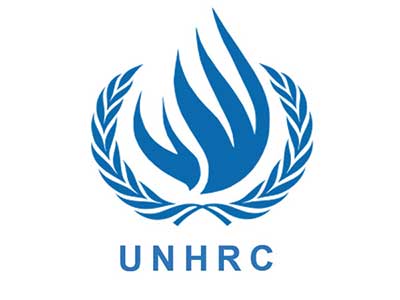New IT rules are to empower ordinary users - India assures UNHRC
In News
On 20th June 2021, India refuted the concern of United Nations Human Rights Commission (UNHRC) and assured that new IT rules are “designed to empower ordinary users of social media”.
About
The new IT rules have been finalized after detailed and in depth discussion with various stakeholders. The UNHRC intervened only after a deadlock between twitter and the Indian government on conformity with new intermediary guidelines and digital media ethics code notified by the government on February 25.
UNHRC raised the concern because new IT rules seemed not to meet the essentials of international law and standards related to the rights to privacy and to freedom of opinion and expression as protected by International Covenant on Civil and Political Rights, acceded to by India on April 10, 1979.
The concern was also because government asked Twitter to shut down 1,000 accounts on January 31, 2021 on ground that these accounts were spreading false information about farmers’ protest.
Indian government has ensured UNHRC and replied that,’ the rules are designed to empower ordinary users of social media. The victims of abuse at social media platforms shall have a forum for redressal of their grievances. The IT rules finalized after due discussion with various stakeholders’.
The new rules have been enacted due to misuse of social media and digital platforms. They are also used for incitement for recruitment of terrorists, flow of obscene content, spread of disharmony, financial frauds, incitement of violence, public order etc.
In 2018, government undertook consultation from individuals, civil society, industry association and organisations and welcomed public comments to prepare the draft rules. The Supreme Court has directed to frame necessary guidelines to stop child pornography from online platforms and other applications. The court also directed that such rules should be framed to find out the persons, institutions, and bodies who were the creator of such content messages.
When any message is disturbing the peace and harmony or depicting a woman in a bad light, or sexual abuse of a child then the government seek information regarding the originator of the content.
The government statement says, ‘The government of India fully recognizes and respects the right of privacy, as pronounced by the Supreme Court of India in KS Puttusamy case.
Privacy is the core element of an individual’s existence and, in light of this, the new IT rules seeks information only on a message that is already in circulation that resulted in an offence. The rules have framed in exercise of the statutory powers of the IT Act, fully taking into account the principles of reasonableness and proportionality’.
Twitter has given its written consent to the government to comply with the new IT rules. Other social platforms like Whatsapp, Facebook, You Tube have complied with the new rules but Whatsapp has challenged the guidelines in the court.









